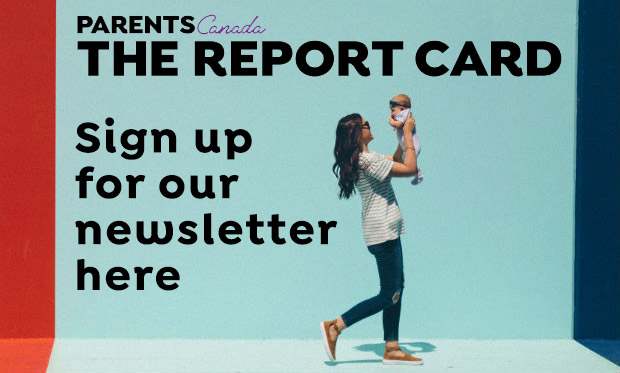YES by Lisa Evans
When I found out I was pregnant, images of school plays and soccer matches filled my head. Down syndrome was nowhere near my pregnant mind. Yet at 19 weeks gestation, it was all I could think about.
I was offered integrated prenatal screening, and I figured why not? I wanted to know as much about this baby growing inside me as I could, including whether he or she would have an illness that would fundamentally alter our family’s life.
Using an ultrasound and two blood tests (at 11–14 weeks and at 15–20 weeks), the screening calculates a woman’s risk for having a child with Down syndrome. A risk factor measuring 1:350 is considered screen negative. My number was 1:150, placing my baby at higher risk for Downs.
Suddenly my partner and I were plagued with questions about how we would afford special needs care. My mind was flooded with images of our baby undergoing multiple surgeries (about half of infants with Down syndrome have a heart defect).
Six long days later, I met with Hana Sroka, a genetics counsellor at Mount Sinai Hospital and said I couldn't go another 21 weeks not knowing. Hana explained I could have amniocentesis, which provides a quick yes/no answer, but the test comes with a small (0.1-0.3%) risk of miscarriage, or, I could opt for NIPT (non-invasive prenatal testing) — a simple blood test with a 99 percent detection rate for Down syndrome. I did the blood test, which came back four days later — negative.
I know I can’t predict every bad thing that may happen to my child in his lifetime, but to me, being a good parent meant that I was prepared for any medical condition that would alter his quality of life from birth. Knowing he would have a fighting chance at a normal life allowed me to enjoy the remainder of the pregnancy, visions of soccer games and all.
NO by Kari Reinhardt
“Will you murder her?” a spectral voice asked in my anguished dream seven years ago.
I jolted awake and clutched my heart. My panicked movements roused my slumbering daughter, who cartwheeled inside my tummy. My beloved, third child, Madeline, who performed in utero acrobatics that night, was a very sick girl, and that knowledge was disturbing my sleep.
Because I was 41, I’d opted to have a Chorionic Villus Sampling (CVS) prenatal test which detects manifold genetic disorders. I forfeited extensive prenatal screening tests when I was younger and pregnant with my first two children.
The CVS predicted had Madeline been born, she would've had a short, excruciating life. Perhaps mercifully, she died before her due date.
She frolicked inside me that sleepless night, though, as my husband and I agonized over a pivotal decision. Would we allow the doctor to abort her? There are more “PC” expressions for late-term abortion like prenatal euthanasia. But many parents like us, feel like we must decide whether to execute our own child or let her survive and suffer.
Heads or tails, the choice may seem selfish. And you’ve only mere weeks to make this harrowing decision after a dire prenatal test result.
And what if the result is wrong? According to Perinatal Services British Columbia, a small percentage of prenatal tests falsely confirm serious birth defects. Amniocentesis and CVS also increase miscarriage risk by about one percent. So you may lose your healthy child either by making a misguided choice to abort, or through a miscarriage caused by the prognostic test.
There’s also a small chance you’ll be told you have a thriving baby when she may actually be very ill.
Knowledge for me wasn’t power. I felt wholly impotent when I assumed a role I was wholly unprepared for — playing God.
Dr. Andrea Skorenki, an obstetrician/gynecologist at Grey Nuns Hospital in Edmonton, weighs in:
A prenatal screening test like a quad screen is very different from a diagnostic test like amniocentesis. The screening test has no risk to the baby, as it only requires a blood test and sometimes an ultrasound, but it cannot give you a yes or no answer. It will only give you a risk score of the baby having a chromosomal disorder. For a definitive diagnosis, you would then need to do invasive testing like amniocentesis or CVS , which does have a small amount of risk.
The purpose of the screening test is not to diagnose Down syndrome, but to decide who should proceed with invasive testing. Deciding whether to screen is a very personal decision. In some cases it can be very helpful and can guide you in how concerned you should be. If the ultrasound comes back with a minor abnormality, or if you are an older mom, a negative screening test can be very reassuring.
That being said, a positive screening test can cause a lot of extra stress and does not necessarily mean there is a problem. A ‘high risk’ result of 1:150 chance of Down syndrome still has a 149:150 chance of being a completely healthy baby. If you are the type of person who needs all the details, it may be worth doing. If you know you wouldn’t do an amniocentesis after a positive result it is probably not worth the extra stress. It’s a decision only you and your partner can make.
Originally published in ParentsCanada magazine, December 2014.
















